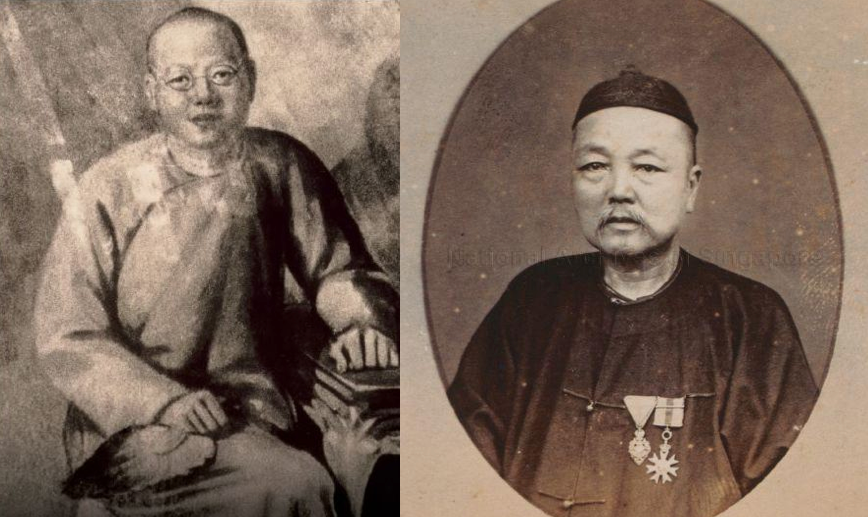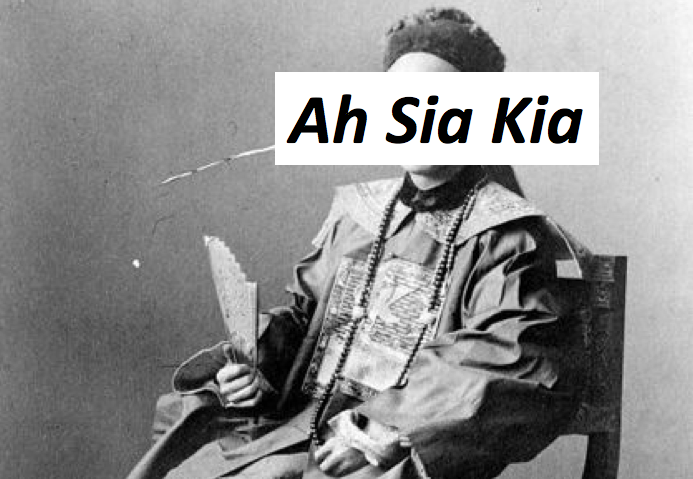If you've lived among Singaporeans (especially those of the Hokkien-spewing variety) long enough, you may have heard of the term "Ah Sia" used to describe people who act like a boss.
And similarly, you may have also heard of the term "Ah Sia Kia" being used to describe a rich man's offspring ("kia" in Hokkien means child/children).
But don't run off calling someone an "Ah Sia" yet though, the term also carries some derogatory connotations in reference to the arrogance of the rich and almighty.
Simi "Ah Sia" and where did it come from?
Back when Southeast Asia was still a place of angmoh's European colonies, Chinese leaders in the various colonies would be appointed by the Europeans to govern the Chinese community of particular places.
Known as the local "Kapitan Cina" or "Captain of the Chinese", these leaders were considered high-ranking officials of each locale's civil administration with varying degrees of power (depending on the European masters).
The practice of appointing Kapitan Cinas was common in British-controlled Singapore and Malaya, and Dutch-controlled Indonesia.
In Singapore, for example, pioneers like Tan Tock Seng and Whampoa Hoo Ah Kay served in the role.
 Tan Tock Seng (left) & Whampoa Hoo Ah Kay (right). Image adapted from NLB and NAS
Tan Tock Seng (left) & Whampoa Hoo Ah Kay (right). Image adapted from NLB and NAS
[related_story]
Interestingly, the scions of Kapitan Cinas in Dutch Indonesia were, by Peranakan custom, given a hereditary title called "Sia" (Hokkien for the Mandarin word 舍 - shè, which means house). The title was probably given to identify the Kapitan's descendants as coming from the same "House" (think "House of Tan", "House of Phua", etc.).
Sia would come at the end of the person's name, like Phua Chu Kang Sia.
Often, these title holders would also be given official posts by the colonial administration.
So, it was probably from this title that the term "Ah Sia" came to mean someone of boss status, and "Ah Sia Kia" as the boss's offspring.
As times changed over the years, however, those with the Sia title removed them from their names, as they were seen as old-fashioned.
Funnily enough, a similar sounding word "sial" in Bahasa Indonesia carries the following meanings: inauspicious, inopportune, pesky, unlucky, untoward, hoodoo, and unfortunate.
We can't be sure, but perhaps there's some link to the derogatory nature of calling someone "Ah Sia" or "Ah Sia Kia"?
Well, history is full of surprises.
Here are some totally unrelated but equally interesting stories:
Enhanced Internships — The next big thing? Two poly grads share their experience
Quiz: What kind of Singaporean will you be in a crisis?
Top image adapted from Wikipedia.
[related_story]
If you like what you read, follow us on Facebook, Instagram, Twitter and Telegram to get the latest updates.


